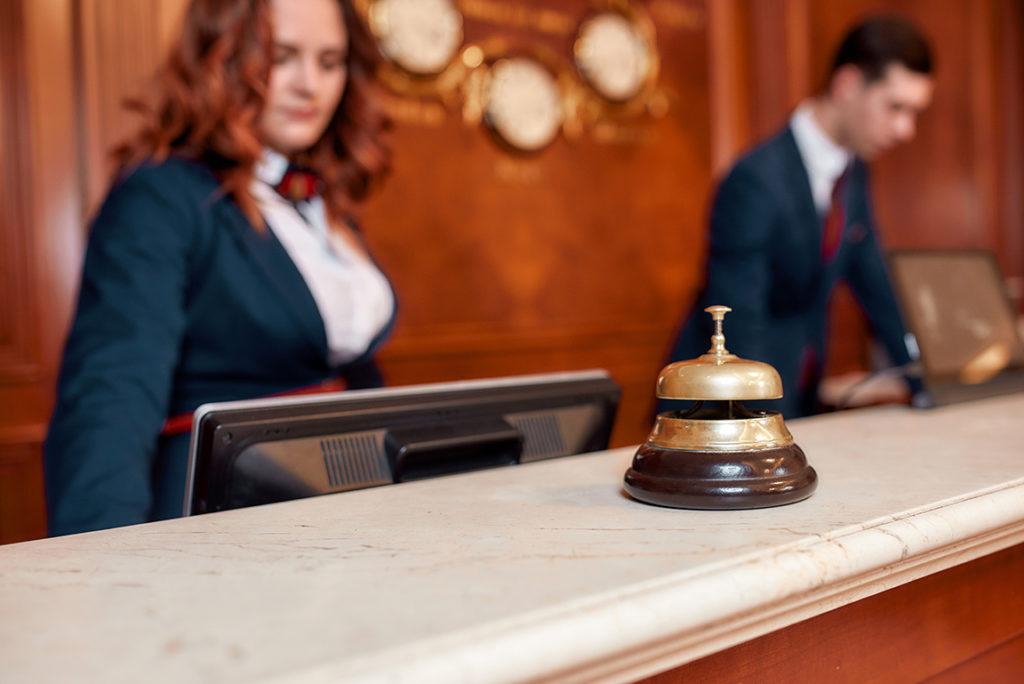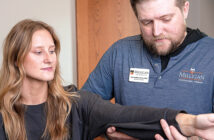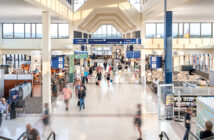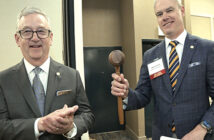By Dave Ongie
According to a national survey, a new surge in COVID-19 cases is resulting in more uncertainty on the horizon for hotels and convention centers.
The survey, which was conducted by Morning Consult on behalf of the American Hotel & Lodging Association (AHLA), indicated that 67 percent of U.S. business travelers are planning to take fewer trips, 52 percent are likely to cancel existing travel plans without rescheduling and 60 percent plan to postpone existing travel plans.
The ripple effect of less business travel extends beyond the hotel industry, which is expected to be down nearly 500,000 jobs compared to 2019. That figure accounts for 10 years worth of job growth in the hospitality industry. According to a study by Oxford Economics, for every 10 jobs at a hotel property support an additional 26 in the surrounding community, meaning an additional 1.3 million hotel-supported jobs could be at risk nationally.
Local hotel and tourism leaders are certainly keeping a close eye on the situation given the key role business travel plays in our region. Leisure travel during the summer months – bolstered by big events such as last week’s NASCAR events at Bristol Motor Speedway and folks passing through on summer vacations – has helped offset the loss of revenue normally generated by business travel.
“As far as we’re concerned, business travel is our bread and butter, but luckily for us, our transient leisure business has been up,” said Brenda Whitson, executive director for the Johnson City Convention & Visitors Bureau.
Whitson cited the latest Smith Travel Accommodations (STAR) Report, which showed occupancy in Johnson City’s hotels was up to nearly 58 percent this year through the month of August compared to 40 percent at this point last year.
In terms of business travel, Christopher Perrin – marketing director for Discover Bristol – said hotels in and around Bristol were “all over the board” when it came to the effects of the pandemic on business travel. The most prevalent feedback he’s heard is that corporate accounts are in “wait-and-see” mode as the Delta variant drives up case numbers and keeps many business interactions confined to virtual meetings.
But the loss of business travel has been partially offset by the return of big events at Bristol Motor Speedway this year, as well as the return of outdoor events like the Bristol Rhythm & Roots Reunion. The STAR report shows the average daily rate in Bristol from January through August is up 23 percent year-over-year, but the more encouraging news is the daily rate is actually 7 percent higher than it was in the pre-COVID world of 2019.
The data relating to Virginia and Tennessee reads a bit like “A Tale of Two States.”
In Virginia, it has been reported that hotels are bracing for a $1.5 billion loss in 2021, 63.5 percent below pre-pandemic revenue levels. According to data gathered in a study by Oxford Economics, the number of hotel jobs in the state has declined from 52,897 in 2019 to 40,347 this year, a 23.7 percent decline.
Meanwhile, the decline in hotel employment in Tennessee is 13.9 percent. The state reports 31,807 hotel employees compared to 42,120 in 2019. Tennessee has fared better than some states because of an uptick in leisure travel over the summer, and Whitson believes the state’s approach to the pandemic paid dividends in that respect.
“I think as far as jobs lost, overall in the state, we lost 23 percent of those who were employed in the travel and tourism industry,” she said. “But I do feel like we did have cities that opened up more quickly and some that basically never shut down, and that did help us fare a little bit better in terms of seeing the uptick in travel.
“Places with tougher COVID restrictions, they fared worse than we did in Tennessee.”
Bristol may be on the border of two states that took different approaches to the pandemic in terms of COVID protocols, but Perrin said there are other factors that have played a much bigger role in day-to-day operations of hotels in our region. For example, Perin believes the struggle to hire employees on both sides of the state line has served as a drag on revenues.
“Some of the hoteliers could have been even better, but they were having trouble with staffing,” he said. “They were having to close off rooms because they didn’t have the staffing to turn all the rooms.”
Also, an increase in the minimum wage in Virginia from $7.25 an hour to $9 per hour has sent hoteliers on the Tennessee side scrambling to stay competitive. “It’s really kind of forcing the hand of the Tennessee businesses,” Perrin said.
There are estimates that business travel may not settle back into a normal flow until 2024, which will force hoteliers to remain flexible as they look to keep filling their rooms. Perrin said hoteliers he talks to are keeping lines of communication open and maintaining relationships with corporate accounts through the current holding pattern.
“When it opens back up, you have to be well positioned,” he said.
In the meantime, Whitson said hoteliers are adapting to a world where business travel happens at the spur of the moment and at a much smaller scale than it did before the pandemic. “We’re seeing some business travel book in shorter windows,” she said.




